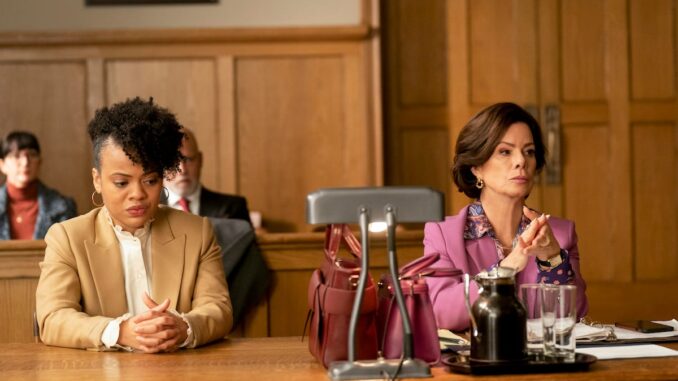
The Peeking Detective: "So Help Me Todd" and the Rear Window Homage
"So Help Me Todd," a show built on the delightfully dysfunctional dynamic between a hyper-organized lawyer mother and her charmingly chaotic, eternally resourceful son, thrives on its quirky cases and unexpected twists. This season promises a particularly intriguing turn, as hinted by Skylar Astin's teasing of a "Rear Window"-esque hospital stay for Todd. The prospect of Todd, confined and observant, channeling his inner Jeff Jeffries (James Stewart) opens up a fascinating avenue for the show to explore themes of observation, perception, and the blurring lines between reality and suspicion, all while maintaining its signature blend of humor and heart.
The "Rear Window" trope, where a protagonist confined to their home becomes convinced they've witnessed a crime, is a classic for a reason. It allows for a concentrated exploration of human curiosity and the tendency to project meaning onto the seemingly mundane. In the film, Jeffries' boredom and immobility become fertile ground for suspicion, transforming his neighbors into potential murderers. Applying this framework to Todd, a character already prone to seeing patterns where others see chaos, promises a particularly potent concoction.
Imagine Todd, recuperating from an injury (perhaps sustained during one of his typically reckless investigations), cooped up in a sterile hospital room. His natural inquisitiveness, amplified by boredom and medication, turns the comings and goings of doctors, nurses, and fellow patients into a complex puzzle. He might scrutinize hushed conversations, interpret fleeting glances, and overanalyze the contents of lunch trays, building elaborate theories based on fragments of information. Astin's teasing suggests this will be more than just a surface-level imitation; the show will likely weave in its own unique take on the premise. Perhaps Todd's "Rear Window" investigation will involve hacking into the hospital's security system, utilizing his tech skills to uncover hidden files and patient records, adding a modern, digital twist to the classic voyeurism.
Furthermore, the hospital setting offers a compelling contrast to Todd's usual environment. He’s typically in his element navigating the bustling streets of Portland, leveraging his street smarts and tech savvy to solve crimes. Confined within the rigid structure of a medical institution, his freedom is curtailed, forcing him to rely solely on his observational skills and resourcefulness. This restriction could highlight his strengths while simultaneously exposing his vulnerabilities. We might see a more introspective Todd, grappling with his own limitations and the weight of his suspicions.
The dynamic with Margaret, Todd's lawyer mother, is likely to be a significant element of this storyline. She, ever the pragmatist, will undoubtedly be skeptical of Todd's paranoid deductions, leading to hilarious clashes of perception. Imagine Margaret, attempting to focus on a complex legal case, constantly interrupted by Todd's increasingly outlandish theories about a potential poisoning or a secret medical experiment happening down the hall. This conflict could serve to underscore the inherent differences between their approaches to problem-solving, while simultaneously highlighting the underlying affection and respect they hold for one another.
Beyond the comedic potential, the "Rear Window" setup offers an opportunity for the show to explore deeper themes. It could delve into the nature of truth and perception, questioning how our own biases and experiences shape our understanding of reality. Are Todd's suspicions justified, or are they simply the product of his overactive imagination? The episode could also touch upon the ethical considerations of surveillance and the dangers of jumping to conclusions based on limited information.
Ultimately, the promise of a "Rear Window"-esque hospital stay for Todd in "So Help Me Todd" is exciting because it taps into the show's core strengths: its quirky characters, its clever mysteries, and its willingness to blend humor with genuine emotional depth. By cleverly subverting a classic trope, the show has the potential to deliver a compelling and entertaining episode that will leave viewers questioning everything they see, just like Todd himself. The audience, like Jeffries in his wheelchair, will be glued to the screen, peering into the windows of Todd's hospital room, eager to uncover the truth alongside him. And perhaps, in the process, we'll learn a little something about ourselves and the way we perceive the world around us.
